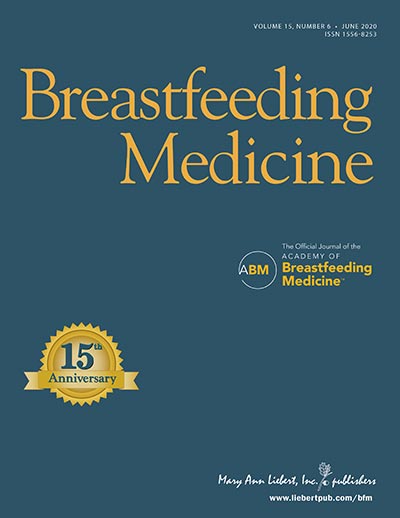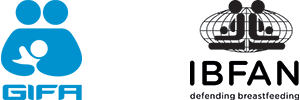
Medical education in breastfeeding remains inadequate despite previous efforts to address the gaps. Additionally, physicians desire more training in breastfeeding, especially clinical skills training, to improve provider confidence and competence, according to a landscape analysis in Breastfeeding Medicine. Joan Younger Meek, MD, MS, at the Florida State University College of Medicine, Orlando Regional Campus, and a past president of the Academy of Breastfeeding Medicine, was the lead author of the paper. The researchers surveyed 816 members of the American Academy of Pediatrics, the American College of Obstetricians and Gynecologists, and the American Academy of Family Physicians. They found that gaps exist in the training of physicians in terms of knowledge base and clinical skills for breastfeeding support. The respondents indicated a desire for more breastfeeding education integrated into their training.
Joan Younger Meek, Jennifer M. Nelson, Lauren E. Hanley, Ngozi Onyema-Melton, and Julie K. WoodPublished Online:9 Jun 2020https://doi.org/10.1089/bfm.2019.0263
Article Published Online: 9 Jun 2020 https://doi.org/10.1089/bfm.2019.0263
Read also
Are the doctors of the future ready to support breastfeeding? A cross-sectional study in the UK (June 2020)
- Kirsty V. Biggs, Katy J. Fidler, Natalie S. Shenker & Heather Brown , International Breastfeeding Journal volume 15, Article number: 46 (2020) Cite this article
Abstract: Currently there is no published data on the inclusion of breastfeeding education within the UK medical school curriculum. This study aims to address this knowledge gap and explore students’ perceptions of their readiness to support breastfeeding.
Results: Curriculum data was obtained from 26 (81%) institutions. Compulsory breastfeeding education was provided by 85% (N = 22) institutions with 81% (n = 21) providing lecture-based teaching and 19% (n = 5) offering formal clinical education. Overall, 411 students from 22 institutions participated. A moderate ability to identify the benefits of breastfeeding was observed; however, self-rated confidence in practical skills was poor. Assisting with latching was the least confident skill, with confidence in only 3% (14/411) students. Most students (93%) viewed doctors as playing an important role in breastfeeding, with those interested in either women’s health, paediatrics or general practice perceiving the role of doctors as more important. Overall, 93% (381/411) students requested further breastfeeding education.
Conclusions: This study suggests UK medical schools are not adequately preparing students to support breastfeeding patients. Further studies should explore the competency of doctors to meet the needs of lactating women, and design optimal training for UK medical students.
Article published in June 2020 https://internationalbreastfeedingjournal.biomedcentral.com/articles/10.1186/s13006-020-00290-z , Joan Younger Meek, Jennifer M. Nelson, Lauren E. Hanley, Ngozi Onyema-Melton, and Julie K. Wood Published Online:9 Jun 2020https://doi.org/10.1089/bfm.2019.0263
